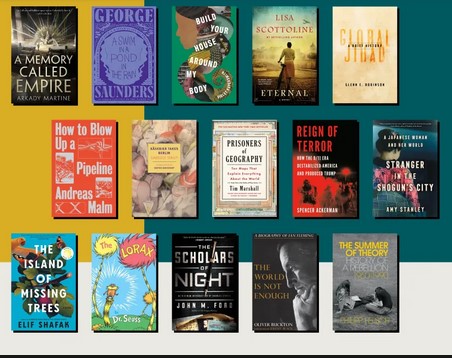In the vast realm of literature, drama novels stand as intricate tapestries woven with emotional threads that captivate readers. This article delves into the essence of drama novels, exploring their unique characteristics, the emotional resonance they evoke, and the enduring appeal that keeps readers immersed in their narratives.

Defining Drama Novels
Drama novels, a genre rooted in human experiences and emotions, delve into the complexities of relationships, conflicts, and the human condition. Unlike other genres, dramas prioritize the development of characters and their emotional journeys, weaving intricate narratives that resonate with readers on a profound level.
Characteristics of Drama Novels
- Rich Characterization: Drama novels are characterized by nuanced and deeply developed characters. Authors invest time in crafting protagonists and antagonists with intricate backgrounds, motivations, and emotional landscapes.
- Exploration of Emotions: The heart of a drama writings lies in its exploration of emotions. These novels often delve into a spectrum of feelings, from joy and love to sorrow and despair, providing readers with a visceral and immersive experience.
- Complex Relationships: Dramas frequently navigate intricate relationships, whether familial, romantic, or platonic. The complexities of human connections serve as a focal point, unraveling layers of interpersonal dynamics.
- Realistic Settings: Drama novels are often set in realistic environments, grounding the narrative in relatable situations. This authenticity allows readers to connect with the story on a personal level.
Emotional Resonance in Drama Novels
- Empathy and Identification: Drama novels evoke empathy by allowing readers to identify with the characters’ struggles and triumphs. The shared human experiences depicted in these novels create a profound connection between the reader and the narrative.
- Catharsis: The emotional release, or catharsis, experienced by readers is a hallmark of drama novels. Through the highs and lows of the story, readers undergo a cathartic journey that leaves them with a sense of emotional fulfillment.
- Reflection on Personal Experiences: Drama writings often serve as mirrors, reflecting readers’ own experiences and emotions. The struggles and victories of the characters may parallel moments from readers’ lives, fostering a deeper connection.
- Resonance Beyond Cultural Barriers: The emotional resonance of drama novels transcends cultural boundaries. While settings and contexts may differ, the fundamental human experiences explored in these novels resonate universally.
- Impactful Storytelling: Drama novels employ impactful storytelling techniques to elicit emotional responses. Through vivid descriptions, dialogue, and internal monologues, authors immerse readers in the emotional landscapes of their characters.
Themes Explored in Drama Novels
- Love and Relationships: The exploration of love and relationships is a central theme in drama writings . These stories navigate the complexities of romantic entanglements, familial bonds, and friendships.
- Loss and Grief: Drama novels often confront the theme of loss and grief, examining how characters navigate and cope with the challenges of bereavement and emotional pain.
- Identity and Self-Discovery: Characters in drama writings frequently undergo journeys of self-discovery. These narratives explore the quest for identity and the internal conflicts that accompany personal growth.
- Social Issues: Many drama writings serve as commentaries on social issues, addressing topics such as inequality, discrimination, and societal norms. These narratives provide a lens through which readers can contemplate and discuss broader societal concerns.
- Moral Ambiguity: Drama novels thrive on moral ambiguity, presenting characters faced with difficult decisions that lack clear-cut answers. This exploration of ethical complexity adds layers of depth to the narrative.
Enduring Appeal of Drama Writings
- Human Connection: The enduring appeal of drama writings lies in their ability to create a profound human connection. Readers seek narratives that mirror their own experiences, fostering a sense of understanding and shared humanity.
- Emotional Engagement: Drama writings offer readers a space for emotional engagement and reflection. The ability to feel deeply invested in the characters’ journeys contributes to the enduring popularity of the genre.
- Escapism with Substance: While drama writings provide an escape into fictional worlds, they do so with substance. The exploration of real emotions and relatable situations distinguishes drama from mere fantasy.
- Catalyst for Empathy: Drama writings act as catalysts for empathy, encouraging readers to understand perspectives different from their own. This empathetic connection fosters a broader understanding of the human experience.
- Timeless Themes: The timeless exploration of universal themes ensures the ongoing relevance of drama novels. Love, loss, identity, and morality are enduring aspects of the human condition that continue to resonate across generations.
Notable Drama Novels
- “Pride and Prejudice” by Jane Austen: This classic explores themes of love, class, and morality in 19th-century England, offering a timeless portrayal of human relationships.
- “To Kill a Mockingbird” by Harper Lee: Addressing racial injustice and moral growth in the American South, this novel remains a powerful commentary on social issues.
- “The Kite Runner” by Khaled Hosseini: Set against the backdrop of Afghanistan’s tumultuous history, this novel explores friendship, betrayal, and redemption.
- “The Great Gatsby” by F. Scott Fitzgerald: A tale of love, wealth, and the American Dream, this novel delves into the complexities of 1920s society.
- “A Thousand Splendid Suns” by Khaled Hosseini: This novel weaves a narrative of female friendship and resilience against the backdrop of war-torn Afghanistan.
Conclusion
Drama novels, with their intricate narratives and emotional depth, continue to occupy a cherished space in the literary world. Through rich characterizations, exploration of universal themes, and the evocation of deep emotions, drama novels offer readers a timeless journey into the complexities of the human experience. As readers seek narratives that resonate on a personal level, the enduring appeal of drama novels remains a testament to their ability to connect, engage, and provoke thought in the hearts and minds of audiences worldwide.

